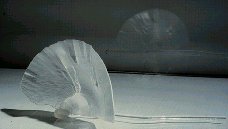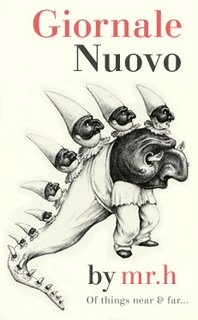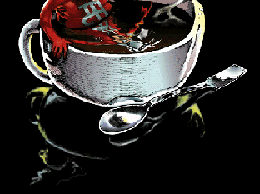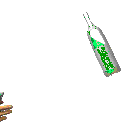David Lynch and Psychosis
Volume 20, Part 5 (May 2007)

Online-only article: David Lynch and psychosis
David Lynch’s latest film, Inland Empire, takes us closer to the heart of his psycchotic universe. Huw Green enjoys the journey.
The word ‘surrealist’ is frequently applied to the work of maverick American film director David Lynch (Bradshaw & Gilchrist, 2007). This automatically links his name with the art movement that has drawn the most on psychology and psychiatry, specifically the idea of the unconscious and dream interpretation. While ‘surreal’ has come to be shorthand for any work of art that draws on bizarre or difficult imagery, I believe that Lynch’s dark and mysterious films can be seen to draw upon-and to inform-concepts in modern clinical approaches to psychology, especially the psychology of psychosis.
 Watching a David Lynch film can give the viewer the impression that the director intuitively understands the underlying mechanisms of psychotic experience. Furthermore, in an age where experiential and subjective approaches to understanding mental illness have fallen out of favour, David Lynch may also offer some insight into the feeling of what it is like to suffer from psychosis.
Watching a David Lynch film can give the viewer the impression that the director intuitively understands the underlying mechanisms of psychotic experience. Furthermore, in an age where experiential and subjective approaches to understanding mental illness have fallen out of favour, David Lynch may also offer some insight into the feeling of what it is like to suffer from psychosis.Epistemological impulsivity and delusional thinking: How Lynch exploits our narrative understanding.
Richard Bentall (2004) coins the term epistemological impulsivity to describe the tendency in deluded psychiatric patients to jump to conclusions about the world around them. In simple experiments to test deductive thinking, such patients jump to conclusions using less evidence and with a greater degree of confidence. This tendency is seen by some (e.g. Garety et al., 1991) as being a key underlying factor in the production of delusional thinking, especially paranoia, which is often based on very small amounts of evidence.
Paranoia comes with an inherent sense of personal threat and concomitant fear. Inland Empire’s dark and chilling world is produced in part by David Lynch’s use of story. While fear is generated with genuinely unsettling imagery and dark shadowy lighting, it also comes from the carefully managed attrition of any recognisable storyline. The audience, who have been led through the early stages of the plot with some of the conventional devices of storytelling (coherent dialogue, linear chronology) are suddenly thrown into a world of unfamiliar film cuts, unexplained locations and wordless acting. We are forced to jump to our own conclusions and build what narrative we will from scant concrete evidence as to events. Our sense of sense itself forces us to put something together and, given the presence of ominous emotions and apparent malice, what we put together is a paranoid and terrifying vision of the intentions of the characters in the film and even the world we inhabit.
In short, Lynch uses our natural epistemological impulsivity against us to generate fear: in this case the human proclivity to build story from elements that may or may not actually be bound as a conventional narrative.






































































































0 Comments:
Post a Comment
Subscribe to Post Comments [Atom]
<< Home